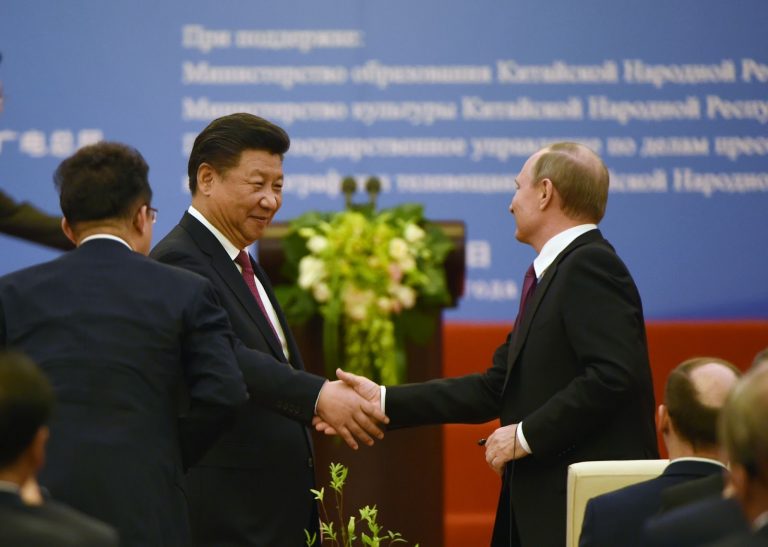In a second meeting in under a month, China and Russia renewed a 20-year-old friendship treaty on Monday, June 28, during a remote video meeting between the two nations’ leaders, Xi Jinping and Vladimir Putin.
In the meeting, Xi praised China-Russia relations calling the relationship between the two nuclear powers a “model example of a new type of international relations” reported Xinhua, a Chinese state run media agency.
The Treaty of Good Neighbourliness and Friendly Cooperation was first signed on July 16, 2001 by then-leader of China, Jiang Zemin, and Putin, who had recently assumed his post as Russian president.
The agreement is credited with resolving the two nations’ historical border disputes and lays out strategic areas for cooperation including in the areas of military and defense. The treaty was due to expire next month.
Following the meeting, Putin described the relationship between the two nations as at “their highest point,” according to Russian news agency TASS.
Success
You are now signed up for our newsletter
Success
Check your email to complete sign up
“Currently, following the letter and the spirit of the treaty, we have managed to bring the Russian-Chinese relations to an unprecedentedly high level, converting them into an example of intergovernmental cooperation in the 21st century,” Putin said.
A ‘strategic partnership’
An expert with the Russian International Affairs Council, Danil Bochkov, said that Russia and China have not left many areas of potential cooperation untouched including “economic, political, geostrategic, security, humanitarian, and cultural.”
Bochkov did acknowledge that there were still some areas of contention between the two nations including Beijing’s influence in Central Asia due to the Belt and Road Initiative and its ambitions in the Arctic.
“The bottom line is that China and Russia are growing closer simultaneously now, but with time it may change, since China is narrowing the gap in many fields where Russia has traditionally enjoyed leading positions”, said Bochkov.
The renewal of the 20-year old treaty comes on the heels of a face-to-face meeting on June 16 in Geneva between Putin and U.S. President Joe Biden and Putin, at which policy on nuclear arms control and the reinstatement of ambassadors to each other’s capitals were discussed.
India stuck in the middle but hopeful
The meeting in Geneva between Biden and Putin was the first meeting between the leaders of the United States and Russia since 2018.
While little progress was made on issues such as cybersecurity, human rights or the Ukraine, both leaders claimed some satisfaction with the meeting and stated that they would continue to engage with one another.
This outcome has given India hope that a warming in US-Russia relations could create an environment where India could strengthen its own ties with the two countries.
Navtej Sarna, India’s ambassador to Washington from 2016 to 2018, said that “the fact that the summit ended on a positive note with a possibility of further deliberations and progress is a good thing for us.”
Sarna said that India has crucial wide-ranging relationships with both countries and that tension between the U.S. and Russia was a source of tension for Delhi.
India’s ties with Russia have been long standing going back as far as the Soviet Union era and remained strong even after the disintegration of the USSR and Russia’s subsequent weakened global standing.
To China’s detriment, Russia supplies India with the majority of its military hardware and supplies and cooperates in a number of areas, including nuclear energy and space technology.
The U.S. designated India a “major defense partner” in 2016 and the two countries have numerous agreements in place that allows New Delhi the ability to procure high-end American weapons technology.


















